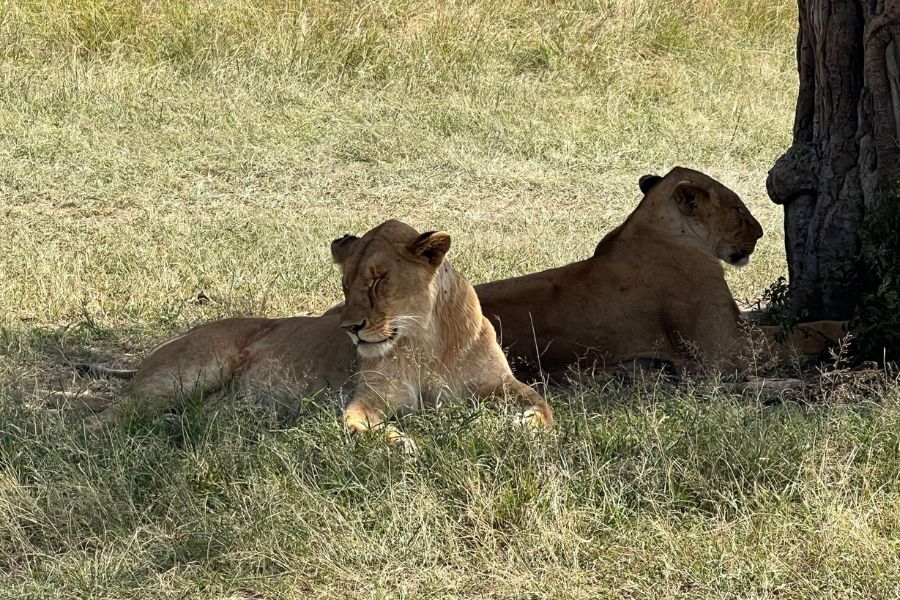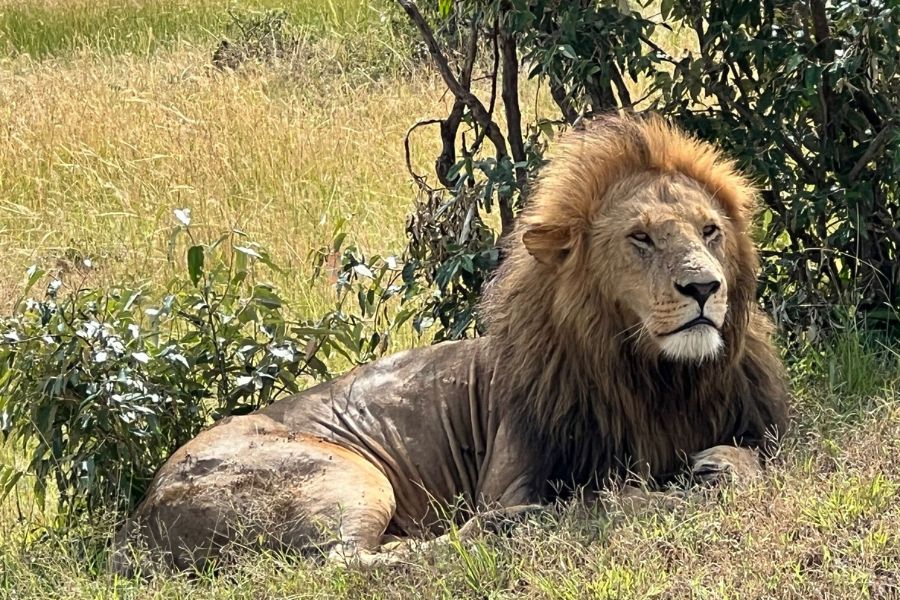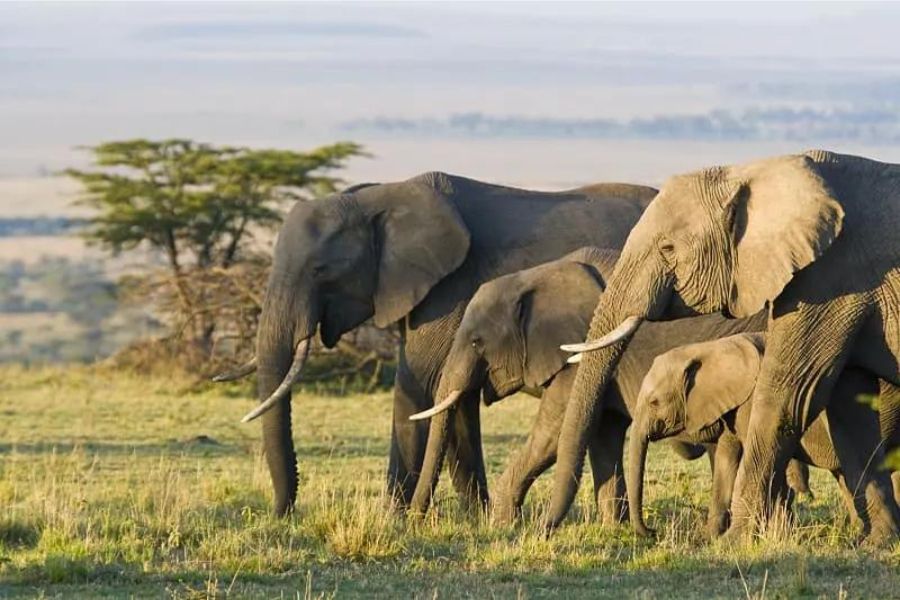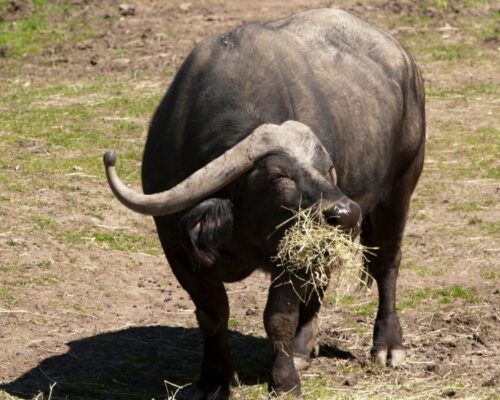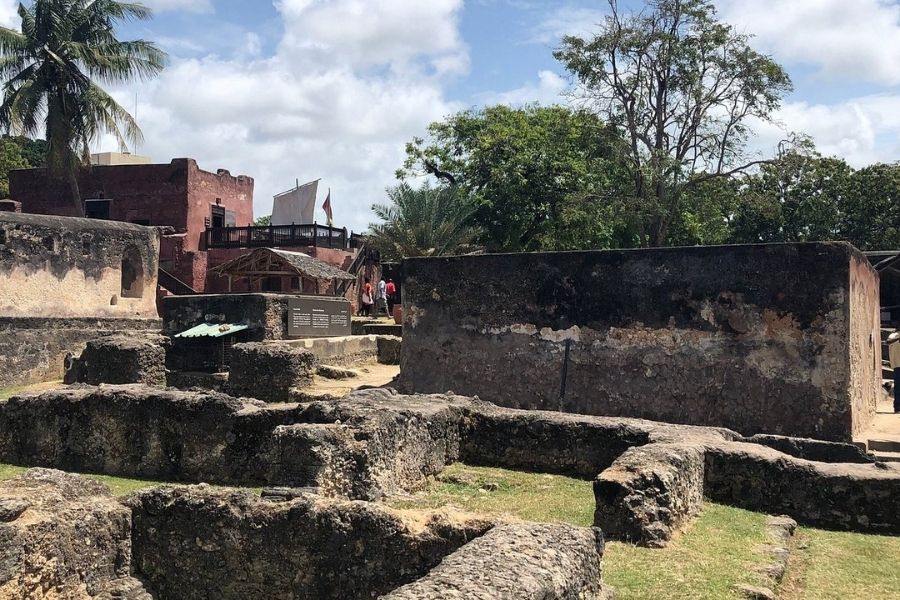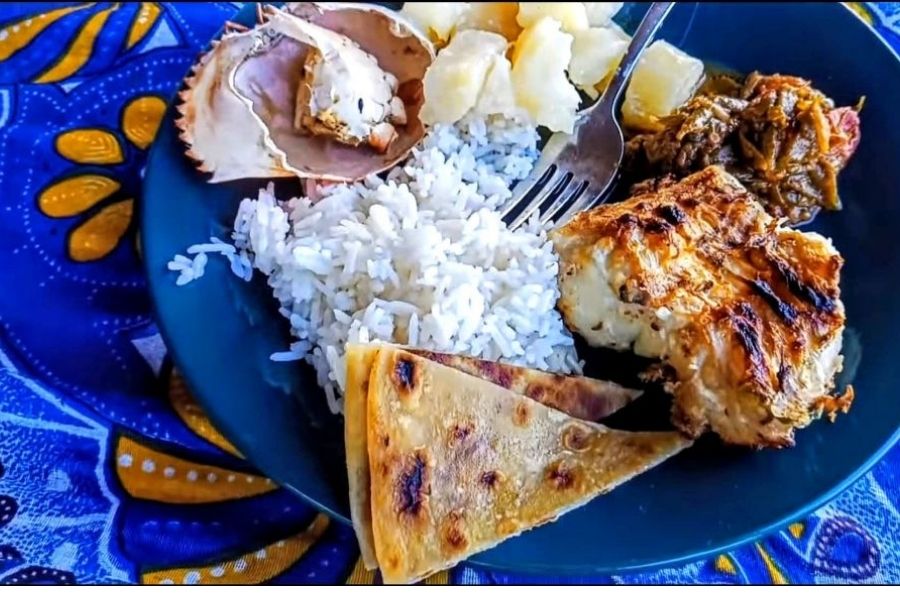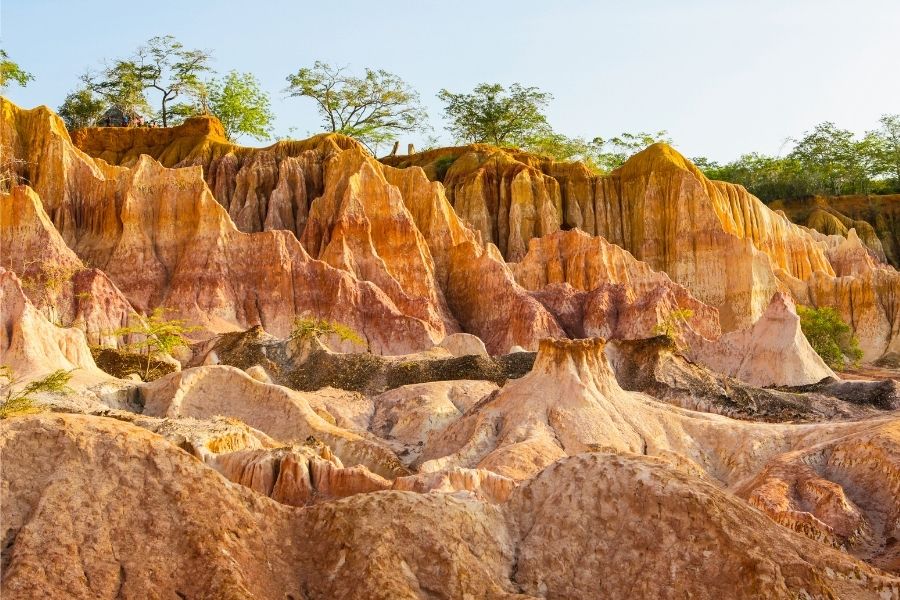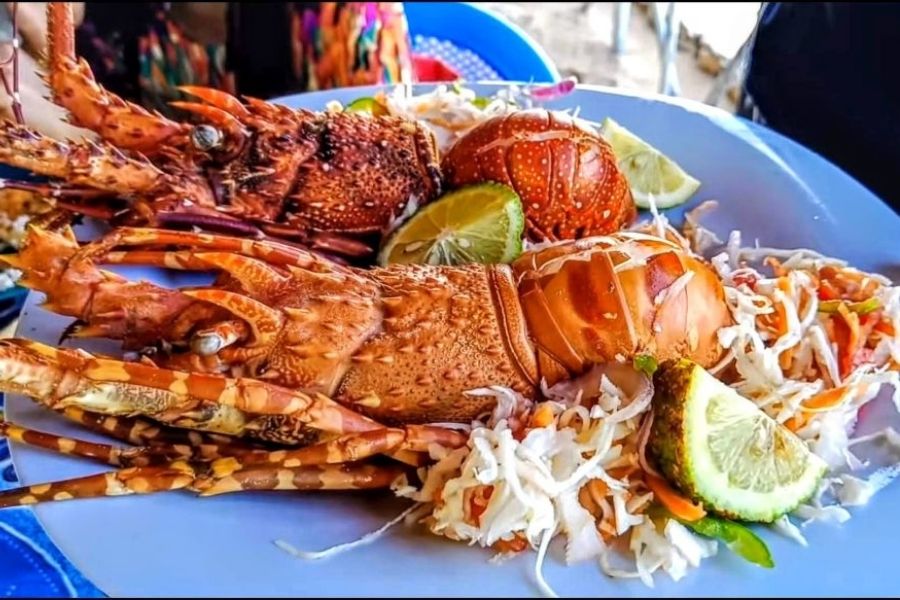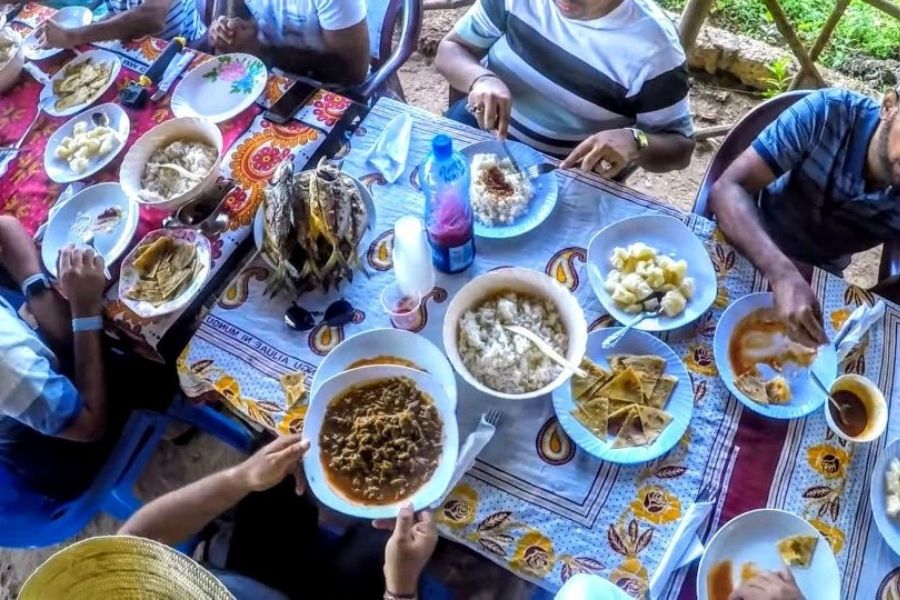
Kenya’s Magical Coastline
The Ultimate Guide to Culture, Cuisine & Coastal Adventures from Diani to Lamu
By Blavals Safaris | Kenya's Coastal Safari Experts
Introduction: Kenya’s Coastal Belt Is More Than a Beach Holiday
Diani Beach & Kwale County
Where White Sands Meet Culture, Caves & Coastal Rainforest
Why Visit Diani?
Must-Experience Activities in Diani & Kwale
Tip: Respect the site — dress modestly, follow the no-photography zones near shrines
Family-friendly: Yes – calm water, educational guide, photography paradise
Tip: Book a sunset seating; dress smart-casual
Pricing: Mains range from $15 to $40 USD
Entry: ~KES 500 for adults, KES 250 for kids
Located: Off Diani Beach Road
Best Accommodations in Diani
What to Eat in Diani – Coastal Cuisine
Traditional Swahili Dishes:
Kid-Friendly Options:
Signature Coastal Drinks – Alcoholic & Family Options
Cocktails (Adults):
Mocktails (Great for Kids & Non-drinkers):
Travel Tips for Diani & Kwale
Summary: Why Diani Should Start Your Coastal Safari
Mombasa – Kenya’s Cultural Capital by the Sea
Where Heritage Meets Hustle on the Kenya Coast
Cultural & Historical Must-Visits
Fort Jesus Museum (UNESCO World Heritage Site)
Tip: Hire a certified guide for in-depth storytelling
Old Town Mombasa
Religious Landmarks: Symbol of Coexistence
Beaches & Urban Adventures
Bamburi Beach & Shanzu Beach
Wild Waters – Kenya’s Largest Water Park
Open: Daily from 10 AM – 6 PM
Tip: Arrive early on weekends and public holidays
Haller Park – An Urban Wildlife Sanctuary
Time needed: ~2–3 hours
Entry: ~KES 800 Adults / 400 Children
Where to Stay in Mombasa & North Coast
Food Scene in Mombasa
Signature Dishes:
Coastal Cocktails & Juices
Cultural & Community Tours
Travel Tips for Mombasa
Why Mombasa Belongs on Your Coastline Journey
Kilifi & Watamu
Where Coastal Charm Meets Creeks, Forests & Coral Wonders
KILIFI: Swahili Creek Life & Laid-back Luxury
About Kilifi
What to Do in Kilifi
Sunset Dhow Cruise on Kilifi Creek
Mnarani Ruins (14th Century)
Salty’s Kitesurfing Village
Where to Stay in Kilifi
What to Eat & Drink in Kilifi
WATAMU: Coral Reefs, Sacred Forests & Marine Conservation
About Watamu
Top Things to Do in Watamu
Watamu Marine National Park & Reserve
Entry Fee: ~KES 300–500 per person
Arabuko Sokoke Forest Reserve
Bio-Ken Snake Park
Open: Daily from 8 am–5 pm
Gedi Ruins (13th–17th Century)
Where to Stay in Watamu
What to Eat & Drink in Watamu
How to Travel Between Kilifi & Watamu
Why Kilifi & Watamu Should Be on Your Itinerary
Both destinations offer an intimate escape from mainstream crowds while immersing you in raw coastal beauty and genuine community tourism. Whether you’re snorkeling with turtles, learning about forest conservation, or enjoying sunset cocktails on a dhow, you’ll feel Kenya’s coast beyond the surface.
Malindi & Lamu – Kenya’s Living Museums by the Sea
Where Swahili Heritage, Dhow Culture, and Island Elegance Collide
MALINDI: Gateway to History, Cuisine & Earth’s Natural Art
About Malindi
Once the bustling heart of East African trade, Malindi has worn many identities: Swahili capital, Portuguese stronghold, Italian artist haven. Today, it’s a relaxed coastal town where locals, Italians, and Giriama tribes coexist, and every alley leads to a story.
What to Do in Malindi
Vasco da Gama Pillar
Marafa Depression (Hell’s Kitchen)
Malindi Marine National Park
Cultural Experiences
Where to Stay in Malindi
What to Eat in Malindi
Local Drinks
How to Get to Lamu from Malindi
LAMU: Kenya’s Timeless Island of Stone & Sail
About Lamu
Must-Do Activities in Lamu
Lamu Old Town Walking Tour
Wander coral-stone alleys lined with carved wooden doors, brass studs, and open-air courtyards.
Island-Hopping & Dhow Sailing
Charter a dhow to visit Shela village, Manda Island, Pate Island, or Takwa Ruins — a 16th-century town buried in sand and history.
Swahili Arts & Culture
Where to Stay in Lamu
What to Eat & Drink in Lamu
Family Activities in Malindi & Lamu
| Activity | Ideal For | Tip |
|---|---|---|
| Snorkeling trips | Kids 7+, couples | Combine with seafood lunch cruises |
| Swahili cooking class | Families with teens | Available at boutique hotels |
| Camel rides on Shela Beach | All ages | Best at sunrise or sunset |
| Gedi & Takwa ruins | School groups & history lovers | Bring water and sunscreen |
| Cultural festivals | Culture seekers | November (Lamu Festival) is peak time |
Places To Visit.
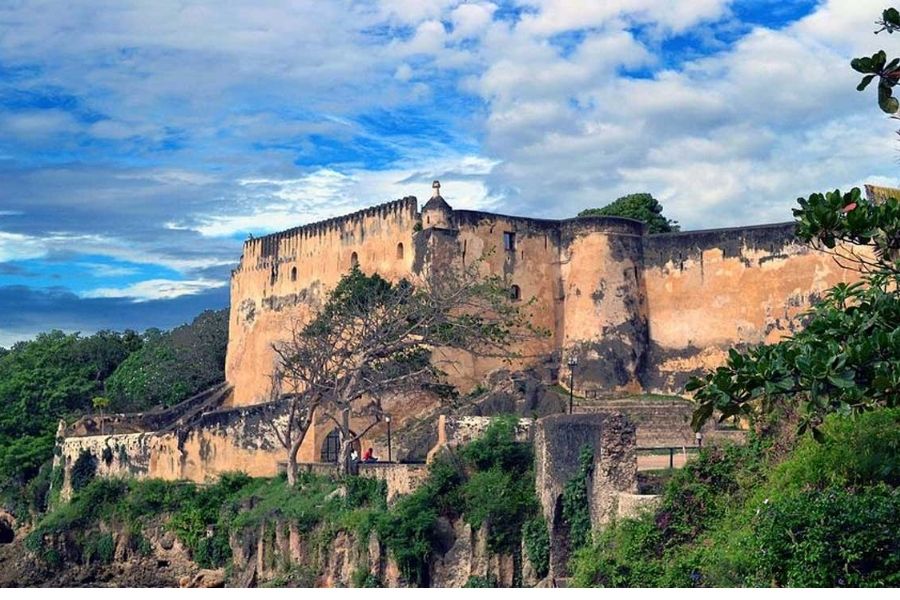
Coastal Kenya Itinerary, FAQs & Travel Tips
Suggested 12-Day Coastal Safari Itinerary with Blavals
Best for families, couples, culture travelers, and luxury adventurers
Day 1–2: Arrival in Nairobi → Flight to Ukunda (Diani)
Day 3–4: Diani → Mombasa (via ferry)
Day 5–6: Mombasa → Kilifi
Day 7–8: Kilifi → Watamu
Day 9–10: Watamu → Malindi
Day 11–12: Fly to Lamu → Full-day Island Adventure
Ultimate Kenya Safari Circuit:
Nairobi → Masai Mara → Diani Beach → Tsavo East & West → Nairobi
Ideal For: Couples, families, wildlife lovers, beachgoers
Theme: Big Five safari, coastal relaxation, wild bush adventure
Travel Mode: Flights + 4x4 Land Cruiser (fully guided by Blavals)
Overview of the Travel Circuit
| Route | Distance | Time |
|---|---|---|
| Nairobi → Masai Mara | 225 km | 1 hr flight or 6 hrs by road |
| Masai Mara → Diani (via Nairobi) | — | 1.5 hrs air transfer total |
| Diani → Tsavo West/East | ~290 km | 4–5 hrs drive |
| Tsavo → Nairobi | ~400 km | 5–6 hrs drive or 1 hr flight from Voi |
Day-by-Day Itinerary Breakdown
Day 1: Arrive in Nairobi – City Welcome
Day 2–4: Masai Mara – Game Drives & Wildebeest Drama
Day 5: Flight from Mara to Ukunda (Diani)
Day 6–7: Diani Beach – Marine Fun & Cultural Flair
Day 8: Diani → Tsavo West – Enter the Wild
Day 9: Tsavo East/West – Red Dust Safari & Lava Landscapes
Stay at:
Days 10–11: Return to Nairobi
Optional Customizations
Summary: Why This Circuit Works
Frequently Asked Questions

Your Safety Is Our Priority.
What To Know Before You Travel.
Passports And Visas
Visa:
Entry Requirements for U.S. Passport Holders.
TSA Precheck:
CBP Global Entry Program:
Double Entry And Multiple Entry Visas.
Non-U.S. Citizens.
Single Entry eVisa:
East Africa Tourist Visa:
Flight Preparation to Kenya from the USA.
Flight Options.
Always ensure that you reconfirm the Flight.
Luggage & Packing.
Carry on, Luggage.
Kenya & Tanzania.
East Africa Cros Borader.
Arrive On Time.
Destination Landing and Eventual Departure.
Transfer.
About Your Escorted Tour Participants in Kenya.
About Your Accommodations.
Electricity in Safari Camps.
Hotel Check-in/ Check-out.
If the hotel can check you in earlier or let you stay later, inquire at the front desk.
Gratuities.
Suggested Tipping: Kenya & Tanzania.
Overland Sightseeing.
Independent Activities.
Currency.
Credit Cards.
Souvenir Shopping.
Staying Healthy While Traveling.
Watch What You Eat.
Stay Hydrated.
Know what Kenya is famous for.
Which is the best place for a Kenya Wildlife Safari?
What is the best month to go on an African safari?
Kenya Selected Parks Average Temperatures.
|
City |
Season |
▫️Jan |
▫️Feb |
▫️Mar |
▫️Apr |
▫️May |
▫️Jun |
▫️Jul |
▫️Aug |
▫️Sep |
▫️Oct |
▫️Nov |
▫️Dec |
|
Nairobi, Kenya |
Low |
63 |
64 |
66 |
68 |
66 |
63 |
63 |
63 |
64 |
66 |
66 |
63 |
|
|
High |
77 |
78 |
77 |
75 |
73 |
73 |
72 |
72 |
74 |
78 |
76 |
80 |
|
Samburu, Kenya |
Low |
75 |
75 |
73 |
75 |
73 |
73 |
70 |
70 |
73 |
73 |
75 |
80 |
|
|
High |
88 |
88 |
87 |
85 |
82 |
82 |
80 |
84 |
84 |
85 |
85 |
90 |
|
Masai Mara, Kenya |
Low |
63 |
64 |
66 |
68 |
66 |
63 |
63 |
63 |
64 |
66 |
66 |
63 |
|
|
High |
81 |
81 |
81 |
80 |
80 |
78 |
77 |
77 |
78 |
80 |
81 |
81 |
Climate & Clothing.
Mobile Phones.
Making Telephone Calls from One Country to Another.
Wi-Fi Access.
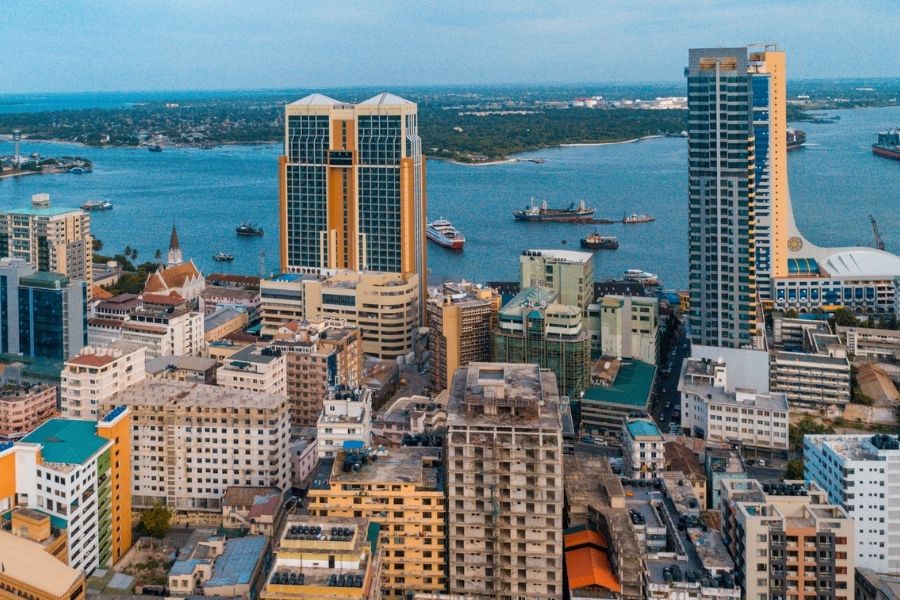
The game drives are calling, the lions are waiting, and the sunsets are ready to blow your mind.
Why This Guide Exists
Others assume they don’t need one at all.
Do You Need a Visa to Enter Kenya in 2024?
Who Needs an eTA to Enter Kenya?
What is the Kenya eTA?
Key Facts:
How to Apply for a Kenya eTA (Step-by-Step)
The process is surprisingly smooth—here’s how to do it:
✅ Step 1: Visit the Official eTA Portal
✅ Step 2: Create an Account
✅ Step 3: Fill in the Application
✅ Step 4: Pay the Fee
Payment is done via credit/debit card.
✅ Step 5: Wait for Approval
Print or download the PDF—you’ll need it at check-in and immigration.
How Long Does It Take to Get the Kenya eTA?
2–3 business days
❌ Common Mistakes to Avoid
You won’t be allowed to board your flight without the eTA.
Upload JPEG or PDF files for documents and photos.
Double-check everything—your eTA must match your actual passport.
What Else Do You Need to Enter Kenya?
Required:
Health/Vaccine Requirements:
What If You’re Traveling with Kids?
Why Kenya’s New System Makes Travel Easier
It also speeds up security and customs.
Bonus Travel Tips from the Blavals Team
Quick Kenya Visa FAQ
Do Australians, Americans, and Canadians need a visa for Kenya?
Can I still get a visa on arrival?
eTA is now mandatory for all travelers.
What if I’m traveling through Kenya to another country?
Is the eTA refundable if my trip is canceled?
Can I extend my stay once I’m in Kenya?
Final Thoughts: Make It Easy, Do It Early
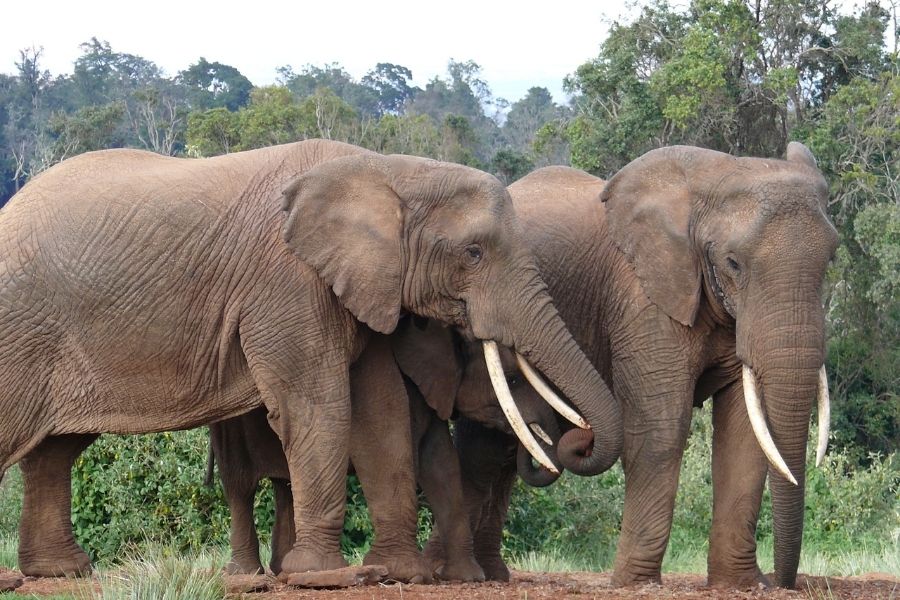
Who Are The Big Five Anyway?
